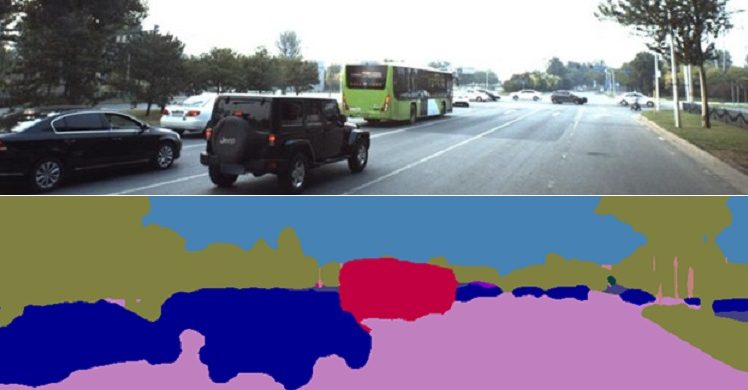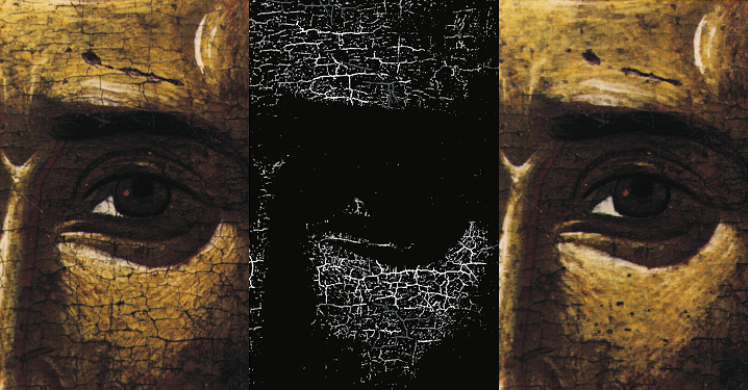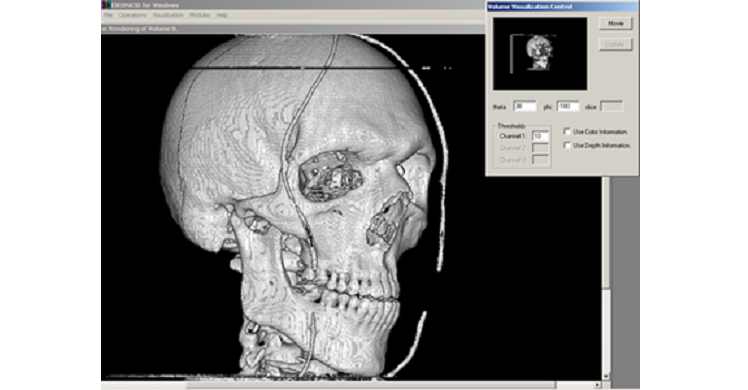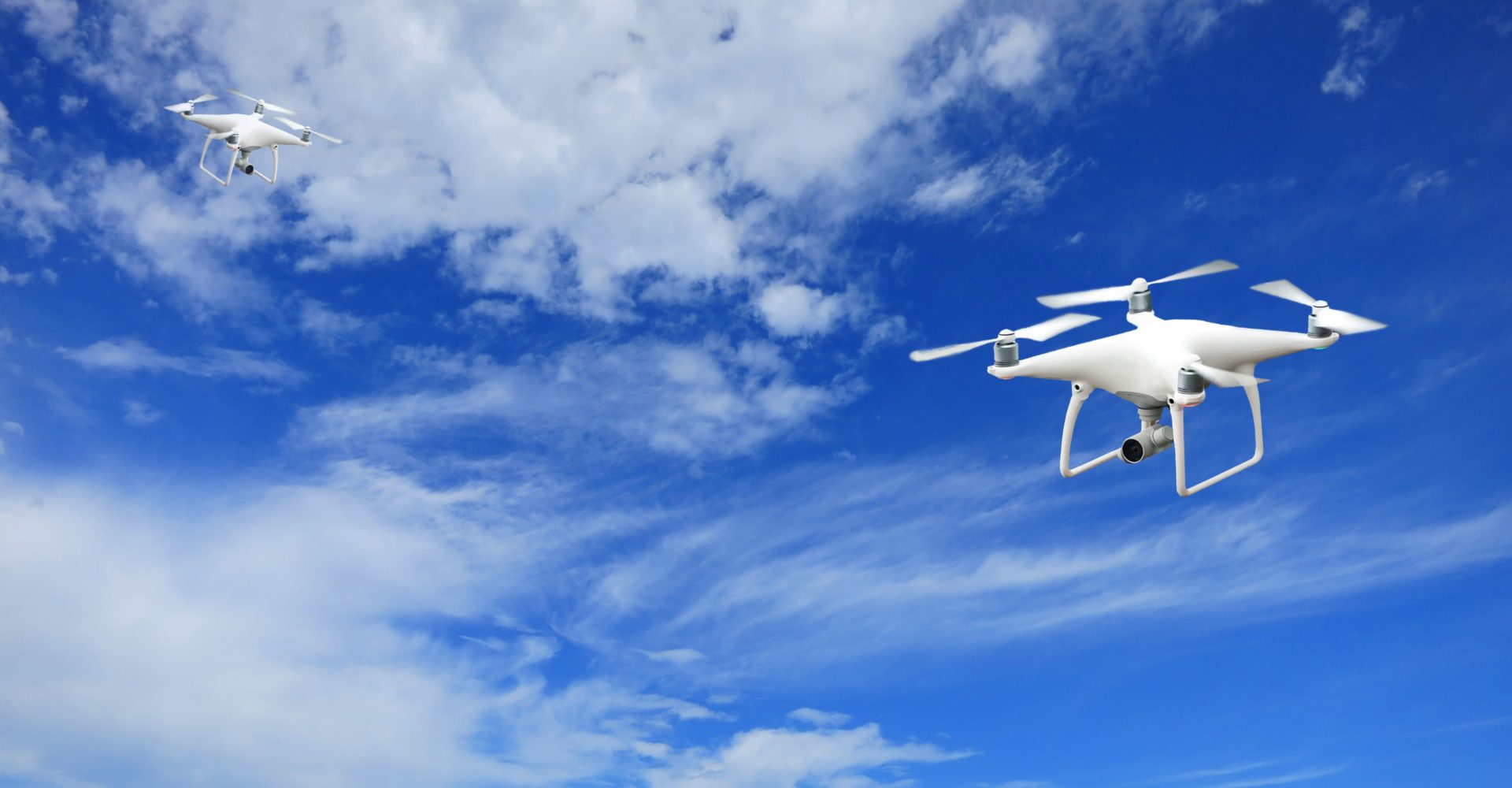DESCRIPTION
Nowadays, Artificial Intelligence drives scientific and economic growth worldwide. This is largely due to advances in Machine Learning (ML), notably in Deep Neural Networks (DNNs), which are essentially massive ‘learning by experience/examples’ systems. Their applications span and revolutionize almost every human activity:
- Autonomous Systems (cars, drones, vessels),
- Media Content and Art Creation (including fake data creation/detection), Social Media Analytics,
- Medical Imaging and Diagnosis,
- Financial Engineering (forecasting and analytics), Big Data Analytics,
- Broadcasting, Internet and Communications,
- Robotics/Control
- Intelligent Human-Machine Interaction, Anthropocentric (human-centered) Computing,
- Smart Cities/Buildings and Assisted living.
- Scientific Modeling and Analytics.
Several AI advances and challenges hit the news almost every day, arising discussions on AI ethics, privacy protection and its societal impact.
Furthermore, digital images and video are everywhere. Image Processing and Analysis revolutionizes very many domains, notably:
- Digital Media (video/image/movie) Content Production and Broadcasting, Social Media Analytics,
- Medical/Biological/Dental Imaging and Diagnosis,
- Big Visual Data Analytics,
- Internet and Communications (media broadcasting, streaming).
- Scientific Imaging of any sort, e.g., Remote Sensing, Environment Sensing.
Our dream to make machines sense and perceive (notably see) comes true: Nowadays Computer Vision enables diverse applications:
- Autonomous Systems (cars, drones, vessels) Perception,
- Robotics Perception and Control,
- Intelligent Human-Machine Interaction,
- Anthropocentric (human-centered) Computing,
- Smart Cities/Buildings and Assisted living.
Visual Computing, encompassing Computer Vision, coupled with AI (notably Machine Learning and Deep Neural Network) advances hit the news almost every day.
This two-day short course focuses on Deep Learning and Computer Vision theory, their applications in the above-mentioned diverse domains and new challenges ahead. It consists of two parts (A, B) and each of them including 8 one-hour lectures and related material (slide pdfs, lecture videos, understanding questionnaires).
Part A lectures (8 hours) provide an in-depth presentation of Deep Neural Networks, which are at the forefront of AI advances today, starting with introduction to Machine Learning. Then the cornerstone DNN theory and technologies are presented: a) Multilayer perceptron, Backpropagation; b) Deep neural networks. Both data classification and regression problems are treated. Convolutional NNs; b) Recurrent Neural Networks; d) Attention and Transformers and its use in computer vision; e) Deep Reinforcement Learning models. Finally, Generative Adversarial Networks and Diffusion Models are presented that promise to revolutionize the way we create media/arts, while seriously threatening our democracy with fake data creation and spread.
Part B lectures (8 hours) provide fan in-depth presentation of both 2D and 3D Computer Vision theory and its applications in the above-mentioned diverse domains. 3D Computer Vision starts with a detailed presentation camera geometry, including camera calibration. Then, two lectures on a) Stereo and Multiview imaging and b) Structure from motion will provide the theoretical and algorithmic tools to recover 3D world models from images. The Object detection lecture will provide insights into how to detect objects in images using computer vision techniques. Moreover, Object tracking is presented, as it is of primary importance in practically all the above mentioned Computer Vision applications and way beyond. Region segmentation will detail segmentation of an image into homogeneous regions. Pose estimation will cover the process of estimating the orientation and position of an object in 3D space based on its image. This topic is relevant in a variety of applications, including robotics, augmented reality, and virtual reality. Finally, the lecture on human action recognition will explore the methods and algorithms used to recognize and classify different human activities from video data or image sequences.
UNIVERSITY AUTH
This short course is hosted by Aristotle University of Thessaloniki (AUTH). It is ranked 343/750 internationally in Computer Science/Engineering, respectively, in USNews and is the biggest University in SE Europe.
WHEN?
The course will take place on 28-29 August 2023.
WHERE?
The course will take place at KEDEA, 3is Septemvriou – Panepistimioupoli, 54636, Thessaloniki, Greece.
You can find additional information about the city of Thessaloniki and details on how to get the city here.
PROGRAM
You can click on the lecture title to view its description.
| Time*/date | 28/08/2023 | 29/08/2023 |
| 08:00 – 08:30 | Registration | |
| 09:00 – 10:00 | Multilayer perceptron. Backpropagation | Camera Geometry |
| 10:00 – 11:00 | Deep neural networks. Convolutional NNs | Stereo and Multiview Imaging |
| 11:00 – 11:30 | Coffee break | Coffee break |
| 11:30 – 12:30 | Recurrent Neural Networks. LSTMs | Structure from Motion |
| 12:30 – 13:30 | Attention and Transformers | Object Detection |
| 13:30 – 14:30 | Lunch break | Lunch break |
| 14:30 – 15:30 | Attention in Computer Vision | Object Tracking |
| 15:30 – 16:30 | Generative Adversarial Networks | Region Segmentation |
| 16:30 – 17:00 |
Coffee break |
Coffee break |
| 17:00 – 18:00 | Diffusion Models | Pose Estimation |
| 18:00 – 19:00 |
Deep Reinforcement Learning | Human Action Recognition |
*Eastern European Time (EEST)
**This programme is indicative and may be modified without prior notice by announcing (hopefully small) changes in lectures/lecturers.
***Each topic will include a 45-minute lecture and a 15-minute break.
LECTURER
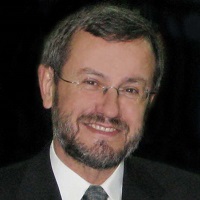
Prof. Ioannis Pitas (IEEE fellow, IEEE Distinguished Lecturer, EURASIP fellow) received the Diploma and PhD degree in Electrical Engineering, both from the Aristotle University of Thessaloniki (AUTH), Greece. Since 1994, he has been a Professor at the Department of Informatics of AUTH and Director of the Artificial Intelligence and Information Analysis (AIIA) lab. He served as a Visiting Professor at several Universities.
His current interests are in the areas of computer vision, machine learning, autonomous systems, intelligent digital media, image/video processing, human-centred computing, affective computing, 3D imaging and biomedical imaging. He has published over 920 papers, contributed to 45 books in his areas of interest and edited or (co-)authored another 11 books. He has also been member of the program committee of many scientific conferences and workshops. In the past he served as Associate Editor or co-Editor of 13 international journals and General or Technical Chair of 5 international conferences. He delivered 98 keynote/invited speeches worldwide. He co-organized 33 conferences and participated in technical committees of 291 conferences. He participated in 75+ R&D projects, primarily funded by the European Union and is/was principal investigator in 47 such projects. He is the coordinator of the Horizon Europe R&D project TEMA, AUTH principal investigator in H2020 R&D projects Aerial Core, AI4Media (one of the 4 H2020 ICT48 AI flagship projects) and Horizon Europe R&D projects AI4Europe, SIMAR. He is chair of the International AI Doctoral Academy (AIDA) https://www.i-aida.org/. He was chair and initiator of the IEEE Autonomous Systems Initiative https://ieeeasi.signalprocessingsociety.org/. Prof. Pitas led the big European H2020 R&D project MULTIDRONE: https://multidrone.eu/ He has 35200+ citations to his work and h-index 88+. According to https://research.com/ he is ranked first in Greece and 319 worldwide in the field of Computer Science (2022).
Professor Pitas will deliver 16 lectures on deep learning and computer vision.
Educational record of Prof. I. Pitas: He was Visiting/Adjunct/Honorary Professor/Researcher and lectured at several Universities: University of Toronto (Canada), University of British Columbia (Canada), EPFL (Switzerland), Chinese Academy of Sciences (China), University of Bristol (UK), Tampere University of Technology (Finland), Yonsei University (Korea), Erlangen-Nurnberg University (Germany), National University of Malaysia, Henan University (China). He delivered 90 invited/keynote lectures in prestigious international Conferences and top Universities worldwide. He run 17 short courses and tutorials on Autonomous Systems, Computer Vision and Machine Learning, most of them in the past 3 years in many countries, e.g., USA, UK, Italy, Finland, Greece, Australia, N. Zealand, Korea, Taiwan, Sri Lanka, Bhutan.
https://aiia.csd.auth.gr/computer-vision-machine-learning/#pitas
https://scholar.google.gr/citations?user=lWmGADwAAAAJ&hl=el
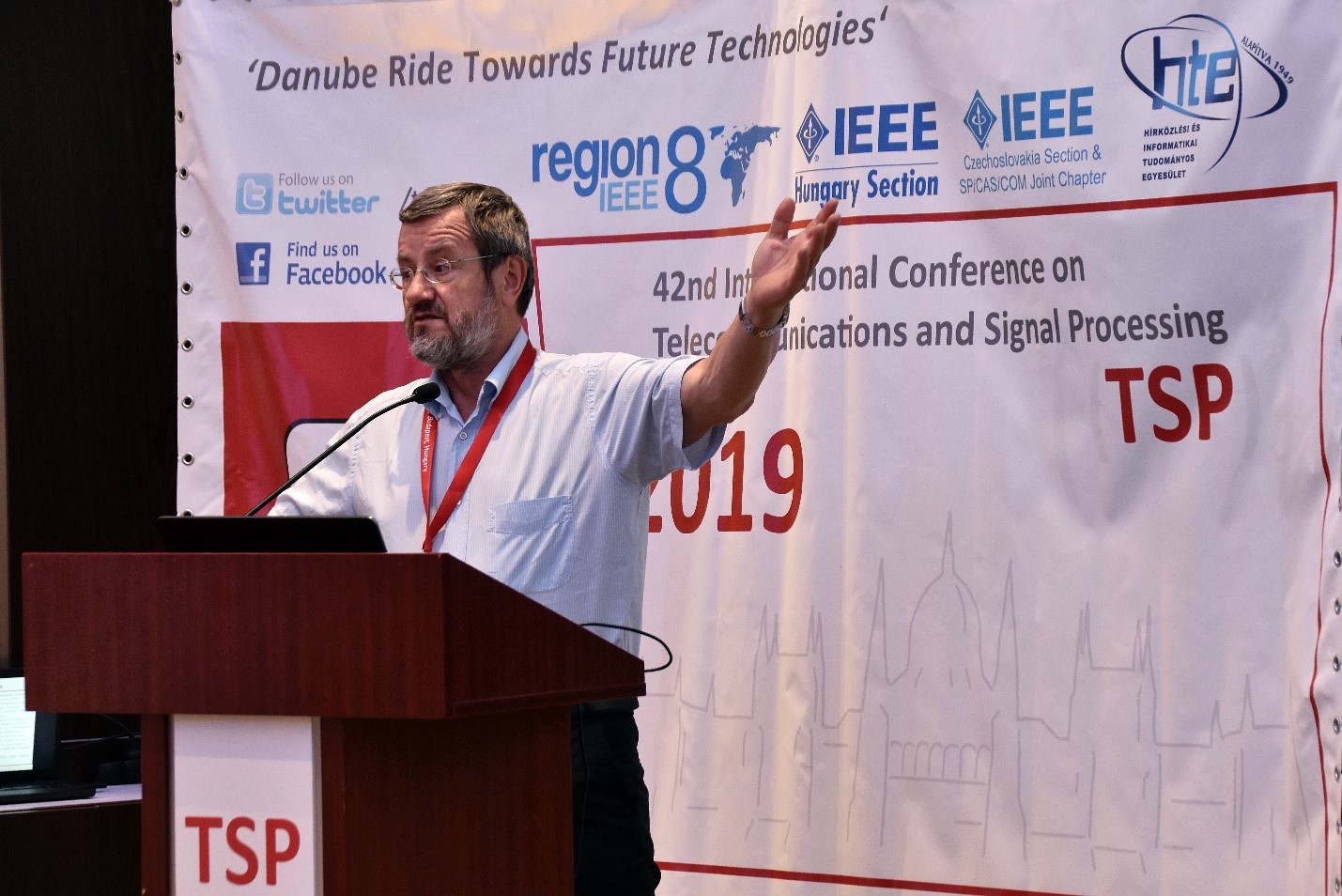
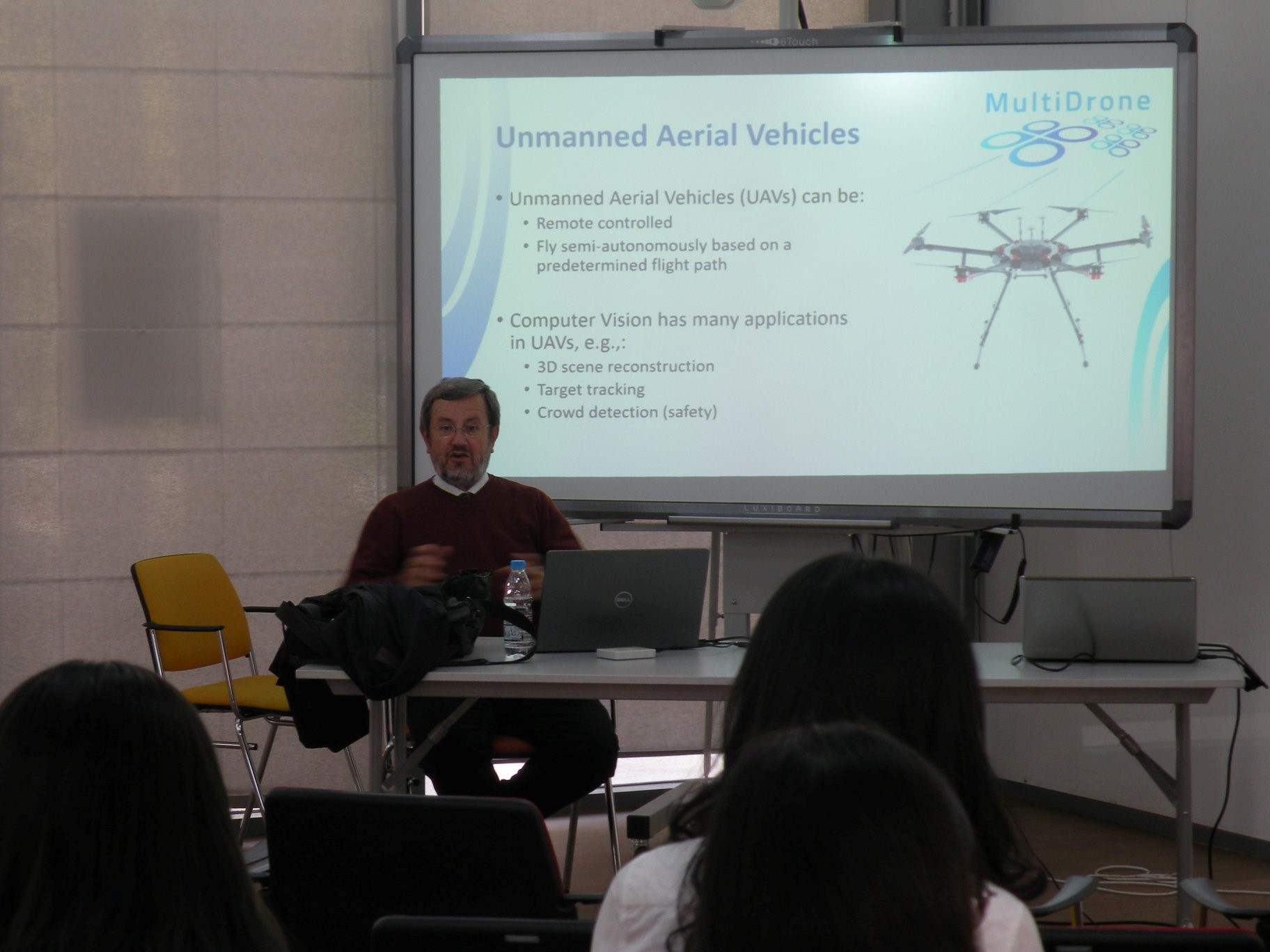
REGISTRATION
Early registration (till 15/07/2023):
• Standard: 300 Euros
•Discount 30%*: 210 Euros
- Personnel working in the Universities and Research Centres of Greece
- Students of higher education institutions
- Unemployed persons
- European Youth Card holders
- Disabled persons
- Women with many children or members of large families
•Discount 15%*: 255 Euros
- Graduates of the Aristotle University of Thessaloniki
- Participants in a previous KEDIVIM programme
- Group registrations of 4 persons or more in the same programme
Later or on-site registration (after 15/07/2023):
• Standard: 350 Euros
•Discount 30%*: 245 Euros
- Personnel working in the Universities and Research Centres of Greece
- Students of higher education institutions
- Unemployed persons
- European Youth Card holders
- Disabled persons
- Women with many children or members of large families
•Discount 15%*: 297,5 Euros
- Graduates of the Aristotle University of Thessaloniki
- Participants in a previous KEDIVIM programme
- Group registrations of 4 persons or more in the same programme
*Proof of student status should be provided upon registration.
After the completion of your payment, please fill in the form below:
Please send email with tilte “CVML Short Course 2023: Deep Learning and Computer Vision” to koroniioanna@csd.auth.gr, if you belong to the above category.
_______________________________________________________________
Lectures will be in English. PDF slides will be available to course attendees.
A certificate of attendance will be provided.
- Certificate of attendance without ECTS: Upon successful completion of more than 14 lectures.
- Certificate of attendance with ECTS: Upon successful completion of more than 14 lectures and successful answer to questionnaires (mark equal or above 5 in the range 0-10, 10 being excellent).
Cancelation policy:
- 50% refund for cancelation up to 31/07/2023
- 0% refund afterwards
_______________________________________________________________
KNOWLEDGE SELF-ASSESSMENT
You may want to self-assess your knowledge on Deep Learning and Computer Vision topics, by trying the assessment exercises before and after studying this course.
It takes you only 15 min per questionnaire. You can do this double self-assessment (before/after study) for free, using the sample lecture study material provided below.
CVML PROGRAMMING EXERCISES
Goal: Improve your programming knowledge on Deep Learning and Computer Vision topics using OpenCV, PyTorch and CUDA and your skills on building, e.g.. Convolutional Neural Networks and applying object tracking methods.
CVML SOFTWARE
The following tools are available for demos and student training in the various CVML courses:
- 2D computer vision and image processing software EIKONA.
- 3D image processing and analysis software EIKONA3D.
AUDIENCE
Any engineer or scientist practicing or student having some knowledge of Signals and Systems, and Machine Learning, notable CS, CSE, ECE, EE students, graduates or industry professionals with relevant background.
IF I HAVE A QUESTION?
PAST COURSE EDITIONS
——————————————————————————————————————
Participants: 30
Countries: France, Spain, United States, Ireland, Poland, Sweden, Norway, Poland, Greece, Malta.
Registrants comments:
- «The quality of the lectures was high; the professor did a very good job explaining clearly all the concepts. It went according to the plan, and to my personal expectations.»
- «Personal experience is always important in this kind of courses. Sometimes adds more gain than general theory.»
- «It was an intensive ride through a wide range of topics regarding drones in research, which I enjoyed quite a lot. It was helpful to brush on past knowledge and accumulate new one. The course also offered me the possibility to encounter a community of passionate researchers which can only motivate me to work harder.»
——————————————————————————————————————
Participants: 35
Countries: France, Taiwan, United States, Sweden, Denmark, Germany, Pittsburgh, Germany, Greece, England, Italy, Spain, Iceland.
Registrants comments:
- “The quality of the lectures was high; the professor did a very good job explaining clearly all the concepts. It went according to the plan, and to my personal expectations.”
- “Personal experience is always important in this kind of courses. Sometimes adds more gain than general theory.”
- “It was an intensive ride through a wide range of topics regarding drones in research, which I enjoyed quite a lot. It was helpful to brush on past knowledge and accumulate new one. The course also offered me the possibility to encounter a community of passionate researchers which can only motivate me to work harder.”
——————————————————————————————————————
Summer School 2020 (held as a web course due to Covid-19 circumstances)
Countries: Belgium, Ireland, Greece, Finland, China, Italy, France, Croatia, Spain, United Kingdom
Registrants comments:
- “Very interesting lecture topics regarding the autonomous systems perception.”
- “The overall course was quite interesting and fulfilling in terms of the context promised.”
- “The lectures were very appealing and satisfactorily delivered.”
——————————————————————————————————————
Participants: 39
Countries: United Kingdom, Scotland, Germany, Italy, Norway, Slovakia, Spain, Croatia, Czech Republic, Greece
Registrants comments:
- “Very adequate information about the topics of DL, CV and autonomous systems.”
- “Very good coverage of autonomous systems vision perception.”
- “Course’s content was greatly explanatory with many application examples.”
- “Very well structured course, knowledgeable lecturers.”
——————————————————————————————————————
SAMPLE COURSE MATERIAL & RELATED LITERATURE
- Pitas, 3D imaging science and technologies, Amazon CreateSpace preprint, 2021.
- Pitas, Computer Vision and Machine Learning, Amazon CreateSpace preprint, 2021.
- Pitas, Digital video processing and analysis, China Machine Press, 2017 (in Chinese).
- Pitas, Graph analysis in social media, editor, CRC Press, 2016.
- Pitas, Digital Video and Television, Createspace/Amazon, 2013.
- Pitas, Digital Image Processing Algorithms and Applications, J. Wiley, 2000.
- Nikolaidis and I. Pitas, 3D Image Processing Algorithms, J. Wiley, 2000.
USEFUL LINKS
•Prof. Ioannis Pitas: https://scholar.google.gr/citations?user=lWmGADwAAAAJ&hl=el
•Department of Computer Science, Aristotle University of Thessaloniki (AUTH): https://www.csd.auth.gr/en/
•Laboratory of Artificial Intelligence and Information Analysis: http://www.aiia.csd.auth.gr/
•Thessaloniki: https://wikitravel.org/en/Thessaloniki

